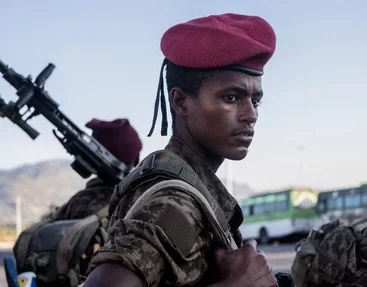Has the Tigray War really ended?
The Ethiopian government and the Tigray People's Liberation Front (TPLF) reached a ceasefire agreement to end the indefinite trail of death that the internecine war had been dragging on for two years now. Let's find out what happened.
The signing of a historic agreement
In Pretoria, South Africa, thanks to crucial mediation by the African Union, the Ethiopian government and Tigray regional forces agreed on November 2nd to a “permanent cessation of hostilities”. Indeed, this is a dramatic diplomatic breakthrough two years after the outbreak of the war that has killed thousands, displaced millions and left hundreds of thousands at risk of starvation.
The African Union said in a statement that it was ready to continue to accompany the peace process in Ethiopia “towards a more democratic, just and inclusive Ethiopia in which young people, women and men participate fully and in peace”.
The joy of the signing of the agreement was from the outset partially concealed by several major questions. Will the two armies definitively leave international aid organizations free to deliver humanitarian aid to an exhausted population? What will the reactions of Eritrea and the government of the Amara region be? They were active participants in the conflict, who were not given the opportunity to participate in the negotiations, though. We will only find out as time goes by.

How did the conflict come about?
The war stems from a catastrophic breakdown in relations between the TPLF, a guerrilla movement that turned into a political party that has dominated Ethiopia for 27 years, and Abiy Ahmed Ali, who was once part of their governing coalition but whose appointment as PM in 2018 ended TPLF rule.
In 2019, PM Ali had been awarded with the Nobel Prize for the peace achieved with Eritrea, which has always been a sworn enemy of the TPLF. This, coupled with the TPLF’s decision to challenge the PM by organizing autonomous regional elections in Tigray, caused an escalation summit of tensions, resulting in the outbreak of war, which officially began on November 4th, 2020.
A first glimmer of peace had been seen in March 2021, when the two sides reached an initial ceasefire agreement, which was abruptly interrupted in August of the same year. The Ethiopian government, in fact, had accused the Tigray Defence Forces of launching a new military offensive, effectively reversing a mutual complaint by the Tigray authorities, who had in turn accused the Addis Ababa Armed Forces of the same action on the southern front.

The consequences of an exhausting conflict
Two years on, the United Nations says that the war has led to a de facto blockade of the Tigray region, resulting in the stalling of humanitarian supplies of food and medicine. Civilian casualties are estimated at between 385,000 and 600,000, and most people have lost their lives due to famine and lack of health care.
There are 400,000 internally displaced people and 83% of the region’s 6 million inhabitants live in a situation of “food insecurity” and around 2 million are in a situation of “extreme shortage”, according to the World Food Programme.
Reactions to the signing of the agreement
“The two parties to the conflict in Ethiopia have formally agreed to a cessation of hostilities and a systematic, orderly, regular and coordinated disarmament,” said Olusegun Obasanjo, head of the AU mediation team. He stated that the agreement also includes “restoration of law and order, restoration of services, unimpeded access to humanitarian supplies and protection of civilians”, praising the process as an African solution to an African problem.
The leader of the Tigrayan delegation Getachew Reda admitted to making painful concessions so that people’s suffering could be ended since “the war over the last two years has claimed the lives of hundreds of thousands and has turned Ethiopia, once on the cusp of great economic progress, into a bad parody of itself and caused tremendous suffering to the people of Tigray.”
On the other side of the table, Ethiopian PM Abiy Ahmed Ali commented as follows: “The agreement signed today in South Africa is monumental in moving Ethiopia forward on the path of the reforms we embarked upon four and a half years ago. Our commitment to peace remains steadfast. And our commitment to collaborate for the implementation of the agreement is equally strong.”
UN Secretary-General António Guterres hailed the announcement as a “positive first step” towards ending the fighting. The same thought was also expressed by Josep Borrel, High Representative of the Union for Foreign Affairs and Security Policy.
In the US, White House spokeswoman Karine Jean-Pierre stated that the United States remains committed to supporting an African-led peace process for Ethiopia. In the same vein, US Secretary of State Antony Blinken said his country “urges all parties to build on this announcement to promote a negotiated and sustainable ceasefire, including necessary security arrangements”.
The European Union also congratulated both sides for “their commitment and courage towards peace”, but encouraged further talks to reach “a permanent ceasefire agreement”.
Hope for a new future for Ethiopia has finally arrived.
Now it is up to all parties to work to keep it alive.



